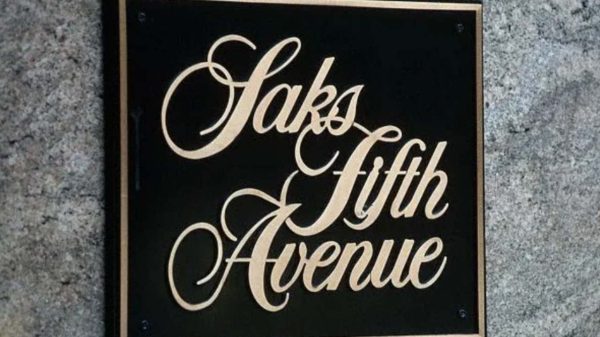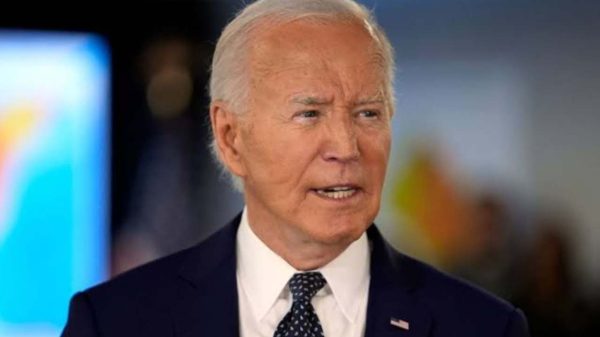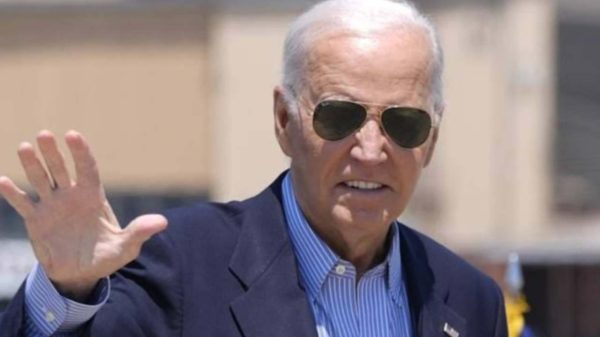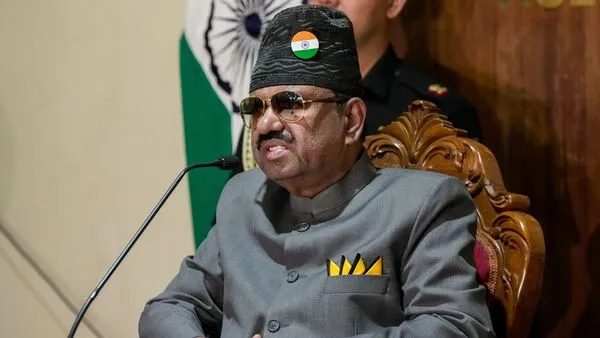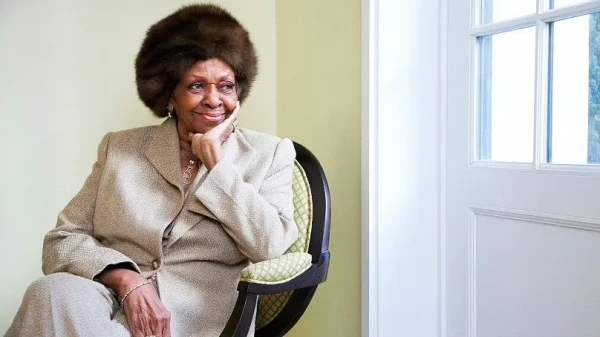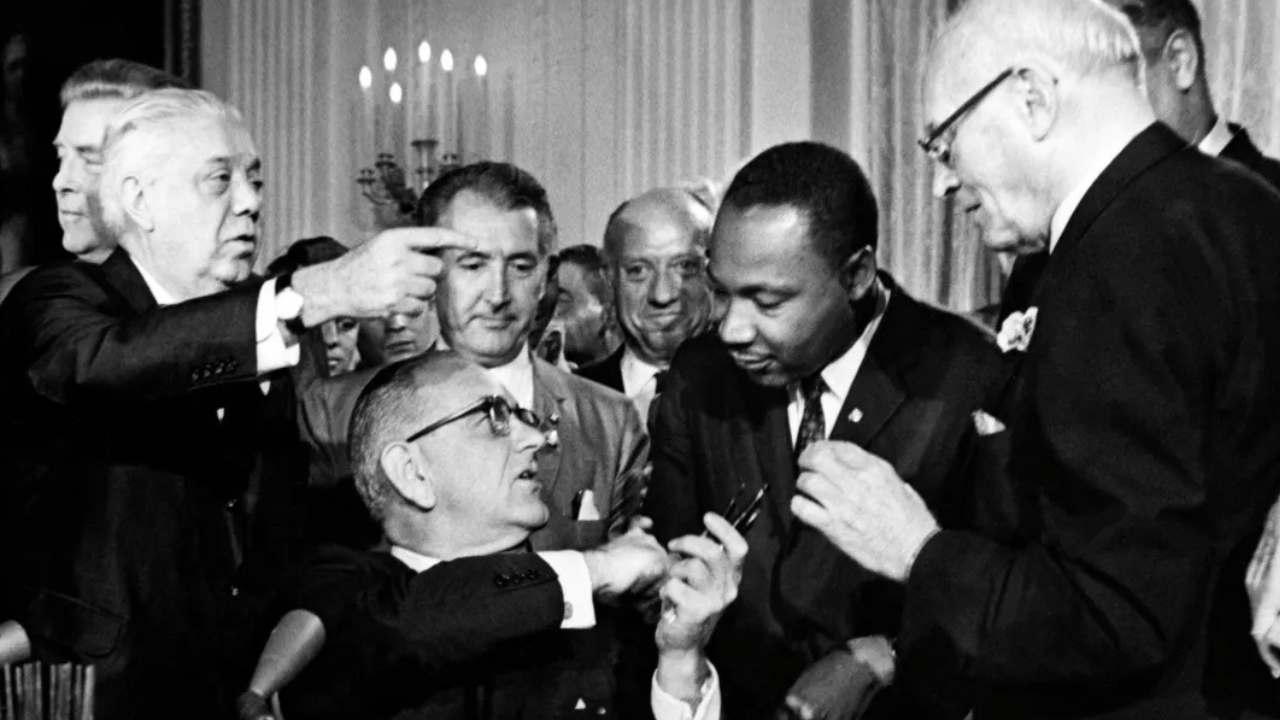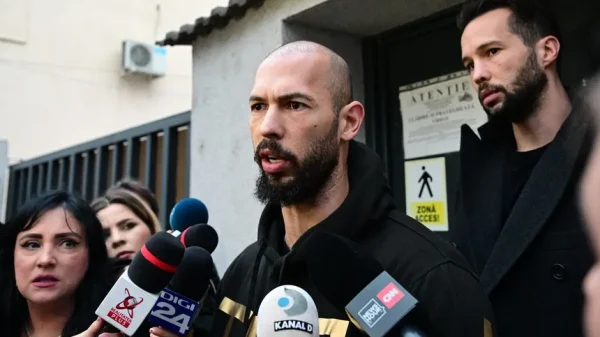Courtland Cox, a young activist at 22 years old, played a significant role alongside civil rights leaders like Bayard Rustin and John Lewis during the March on Washington in 1963.
This historic event marked a pivotal moment in the civil rights movement, drawing attention to the injustices faced by Black Americans under segregation and Jim Crow laws.
The march contributed to a shifting public sentiment that eventually led to the passage of landmark legislation, including the Civil Rights Act of 1964, signed into law by President Lyndon B. Johnson on July 2, 1964.
This legislation aimed to dismantle institutionalized racial discrimination and ensure equal rights for all citizens, marking a critical milestone in American history.
Courtland Cox, now 83 years old, continues to emphasize the ongoing urgency of the civil rights struggle, noting that the battle for equality persists much as it did when he was a young activist.
Despite the passage of landmark legislation like the Civil Rights Act of 1964, many civil rights leaders and organizations argue that its full promise remains unfulfilled, especially in light of recent legal setbacks and rollbacks in rights.
In recent years, advocates highlight several significant Supreme Court decisions that have had profound implications for civil rights.
These include rulings that weakened key provisions of the Voting Rights Act of 1965, overturned Roe v. Wade protections on abortion rights, and made it more difficult to prove racial discrimination in election administration.
These developments have contributed to a renewed sense of urgency among activists, who continue to advocate for justice and equality in the face of ongoing challenges.

The real Title VII of the Civil Rights Act of 1964 document
Indeed, frustrations among voters are compounded by economic concerns such as inflation and other pocketbook issues, alongside perceived delays in addressing racial justice priorities.
These issues collectively underscore ongoing challenges facing communities across the United States.
As citizens navigate these complexities, the intersection of economic stability and social equity remains a critical focal point for policymakers and activists alike.
“We are treading on very dangerous waters,” said Martin Luther King III, son of the assassinated civil rights icon.
“Our task is to get the majority of people to engage. Dad used to say, ‘We must learn non-violence or we may face non-existence.’ We are headed in the wrong direction and we have to find ways to pull those people out to come out on Election Day.”
The anniversary of the Civil Rights Act is undoubtedly a milestone worth commemorating, yet there’s a prevailing sentiment that the historic legislative gains in Black civil rights are currently facing significant threats.
Despite the progress made since its passage, recent developments such as legal challenges, rollbacks in voting rights protections, and setbacks in addressing systemic racism have raised concerns among many advocates and communities.
This ongoing tension underscores the ongoing need for vigilance and continued efforts to protect and advance civil rights for all Americans.
“The past eight years has taught us that all of the things that we thought were codified in law and sacred, and that they were part of this kind of historical narrative about justice – all of those things can be undone,” said Leah Wright Rigueur, a history professor at Johns Hopkins University.
Black Americans historically have favored Democratic candidates, including President Joe Biden in the 2020 election, with significant support.
However, recent shifts in voter sentiment among Black Americans reflect some disillusionment over the pace of progress on civil rights issues.
Advocates are leveraging this moment to encourage increased political engagement and voting participation among Black voters in upcoming elections, emphasizing the importance of exercising their rights to effect change.
This effort underscores ongoing efforts to mobilize communities and address persistent challenges to achieve greater social and racial equity through electoral participation.







